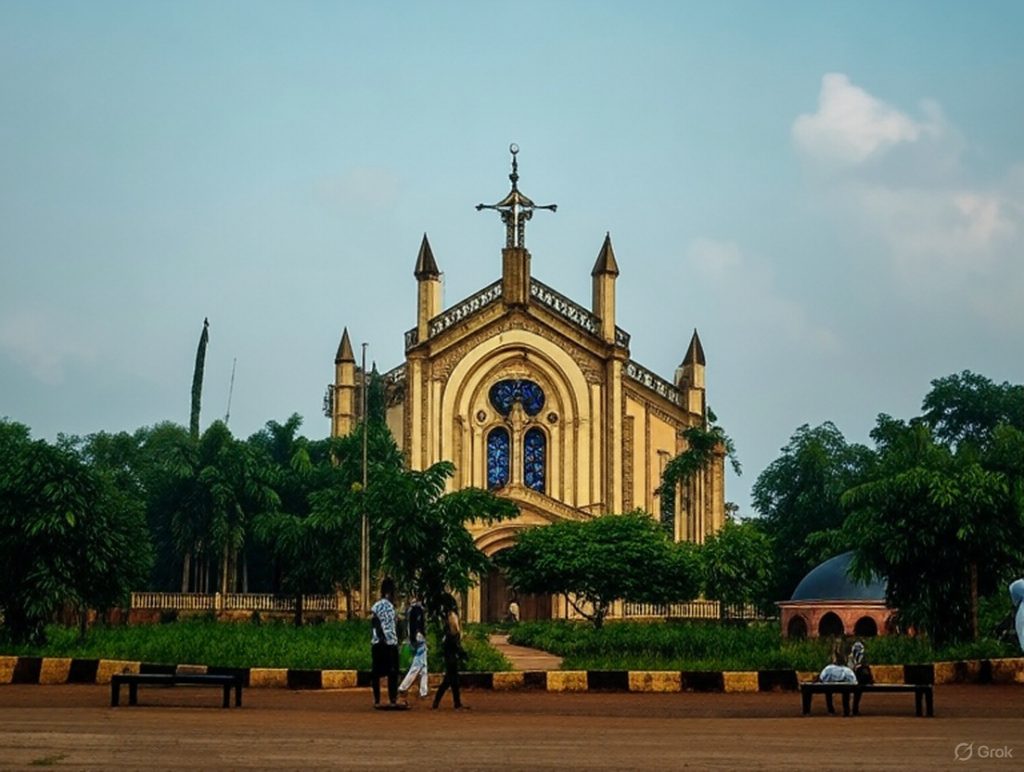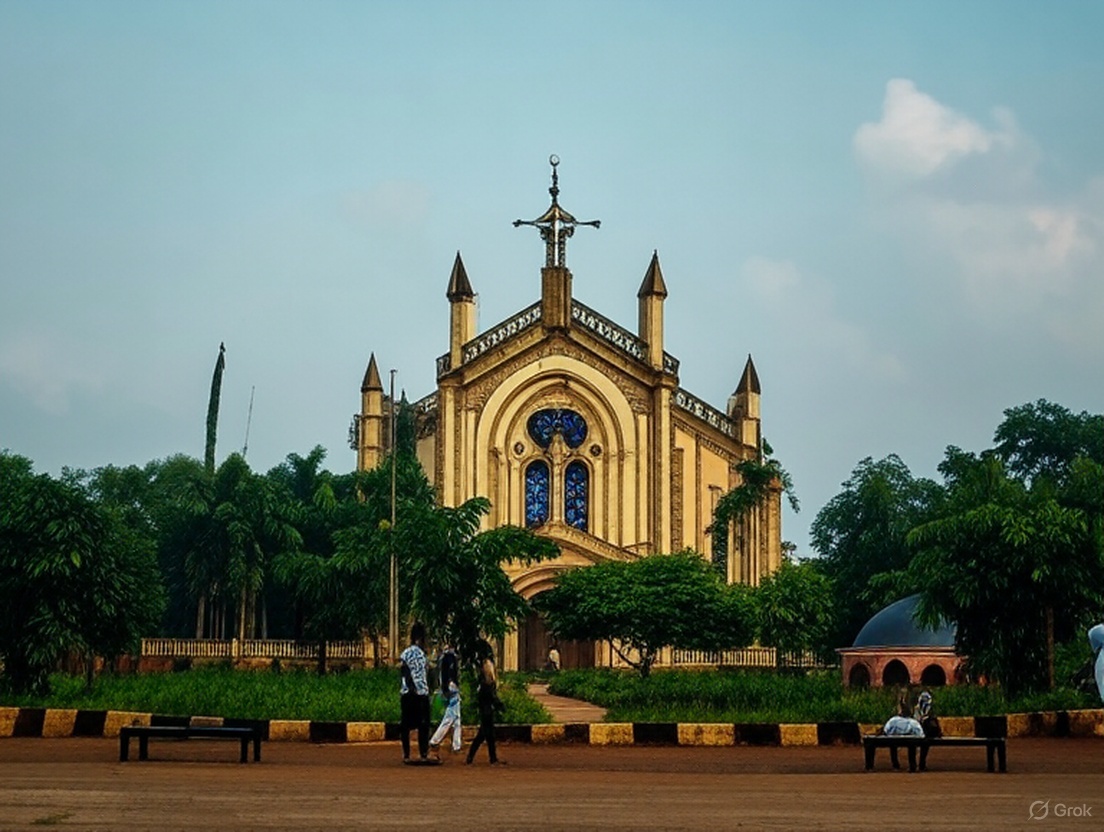In a world where digital scams are growing into a multi-billion naira threat, communities everywhere are struggling to protect their most vulnerable members. Banks push awareness campaigns, governments roll out cybersecurity policies, and tech companies build better detection systems. Yet, amid these formal structures, a less obvious but deeply influential force often goes unnoticed: the role of churches and mosques in safeguarding communities against online fraud. These religious institutions, rooted in trust, culture, and communal authority, have the potential to shape how people understand digital risks and how they respond when they fall victim.

Scammers prey on human weakness, and they succeed not only because of technological tricks but because of emotional manipulation. They exploit trust, urgency, fear, and even faith itself. From fake “blessing” schemes to fraudulent investment pitches dressed in religious language, it is not unusual for fraudsters to invoke divine authority in their scams. In such a landscape, churches and mosques become natural spaces for counteraction. These institutions already play the role of moral guides, social educators, and community organizers. They gather people regularly, command trust, and have a unique voice that blends moral authority with practical guidance. When a pastor or imam speaks against an online scam from the pulpit, it resonates in ways that a government circular or bank SMS alert cannot.
One hidden role these institutions play is shaping the narrative of trust. In communities where people are easily convinced by WhatsApp messages, bulk SMS broadcasts, or smooth-talking online “mentors,” the moral authority of a religious leader can challenge misplaced trust. A simple reminder during a sermon that “not every message carrying the name of God is truly from God” or that “fraudulent gain destroys peace” does more than just deliver moral teaching—it reframes digital caution as part of faith. In doing so, churches and mosques build a cultural firewall against scams by making vigilance not just a technical skill but a spiritual duty.
Beyond shaping attitudes, churches and mosques also serve as information hubs. In rural or underserved areas, where internet penetration is growing but digital literacy lags, congregations become centers for sharing knowledge. A story about a member losing money to an online loan app, or someone duped by a fake charity, spreads quickly within a faith community. When religious leaders turn such incidents into teaching moments, entire communities become sensitized at once. Unlike scattered government campaigns that may never reach certain villages, sermons and religious gatherings reach people where they already are, using familiar language and cultural references.
There is also the role of pastoral and community care. Many victims of scams, especially in Nigeria and similar contexts, suffer not only financial loss but deep shame. Scams are designed to make victims feel foolish, so they withdraw and keep silent. Churches and mosques, however, provide spaces of healing and solidarity. A victim who is too embarrassed to report to the police may open up to a pastor, imam, or small group. This disclosure can become the first step in documenting scam trends, raising communal awareness, and encouraging reporting. In this way, faith institutions become indirect data gatherers and first responders, bridging the gap between private pain and public prevention.
It is also important to see the preventive role of faith-based values. Teachings about contentment, moderation, and discernment counteract the very greed, haste, and gullibility that scammers exploit. A sermon that emphasizes “quick wealth is not lasting wealth” or a khutbah warning against “unverified promises of prosperity” arms congregants with a mindset that resists get-rich-quick traps. In this sense, theology itself becomes a form of cybersecurity—values-based literacy that helps people filter opportunities and recognize manipulation.

Religious institutions can also extend their reach by collaborating with digital actors. Imagine a church hosting a weekend workshop with a local cybersecurity group, or a mosque inviting fintech professionals to speak after prayers about safe online practices. These partnerships merge spiritual authority with technical knowledge, amplifying the message. Even simple actions, such as adding cybersecurity tips to weekly bulletins or broadcasting them through church WhatsApp groups, can transform congregations into digitally aware communities.
The hidden role of these institutions also includes advocacy. Faith leaders, respected by both people and politicians, can press for stronger consumer protection and better regulation of digital platforms. They can highlight cases where poor regulation enables fraudsters to thrive, drawing attention to issues that technical experts alone may struggle to popularize. By giving a moral voice to digital safety, churches and mosques elevate the urgency of protecting citizens from fraud, framing it not only as an economic necessity but also as a moral obligation of leadership.
Of course, challenges remain. Sometimes religious spaces themselves become channels for scams, when fraudulent individuals infiltrate congregations or when leaders, knowingly or not, endorse questionable schemes. The very trust that empowers religious leaders can also be abused if not checked. For this reason, transparency and accountability are critical. Just as these institutions educate against scams, they must also guard against being used as vehicles for them.
Ultimately, the hidden role of churches and mosques in protecting communities from online scams lies in their unique ability to bridge the gap between technology and everyday life. They translate the abstract language of cybersecurity into familiar moral lessons, provide safe spaces for victims, spread awareness faster than official campaigns, and shape values that resist manipulation. In societies where trust is often stronger in religious institutions than in state actors, their influence cannot be underestimated. As digital scams evolve and target new vulnerabilities, communities will need every tool of resilience. Alongside banks, regulators, and cybersecurity experts, churches and mosques stand as overlooked but powerful allies in the defense of digital trust.
